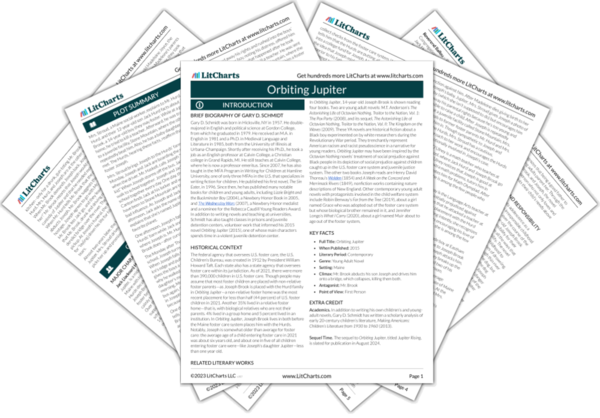The librarian acknowledges Joseph and Jupiter’s parent-child bond by comparing their “determined” personalities and promising to write to Joseph about Jupiter. At the same time, by making clear that she is taking good care of Jupiter, she indirectly suggests that Joseph needs to let responsible adults care for his baby daughter. Joseph’s reply, “I’m her father,” shows that he isn’t yet reconciled to letting other people raise his daughter. Meanwhile, his later comment to Jack, “you still have my back,” expresses Joseph’s appreciation for Jack’s friendship and loyalty.
